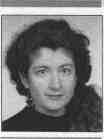 |
Home | Search | Browse | About IPO | Staff | Links |
 |
Home | Search | Browse | About IPO | Staff | Links |
|
The State of the State Poker games, public coffers: Is it time to rein in gambling? 
By JENNIFER HALPERIN Last year, Illinois pulled in some of the highest tax revenues from legal gaming in the country Back in the early 1950s, a young U.S. Army private watched his fellow enlisted soldiers transform their troop ship into a traveling casino. Dice and card games became the norm, he recalls. The games could last around the clock, building up enormous stakes and keeping the players from getting much sleep. If there was one lesson the army private learned during his overseas journey, it was this: Gambling's appeal, particularly for the idle, is intense. In the decades since, the young private moved on to become U.S. Sen. Paul Simon. Gambling, meanwhile, moved from the confines of basements and army ships to become one of the biggest legal industries in the United States — one that draws millions of dollars in tax revenue for states like Illinois. Now, in light of everything he has learned about gambling, Sen. Simon has proposed establishing a commission to study the role of gambling in the United States and its potential problems and payoffs. Simon and Sen. Richard Lugar, a Republican from Indiana who is seeking his party's presidential nomination in 1996, have introduced legislation to create a gambling commission that would last 18 months and operate on a $250, 000 budget. "Local governments, Indian tribes and states — all desperate for revenue — increasingly are turning to what appears to be a quick and easy solution:legalized gambling," Simon wrote in a report to his Senate colleagues. "And, temporarily, it often works." Last year, Illinois pulled in some of the highest tax revenues from legal gaming in the country. In fiscal year 1995, taxes and license fees on Illinois' 10 riverboats brought more than $267 million to state coffers, according to the state's Department of Revenue. A year earlier, the state earned $202 million from riverboats; the year before that, it earned just over $89 million.
Whether that upward trend continues
will depend partly on the performance of
riverboats in surrounding states. In 1994,
boats in Iowa brought in $18.6 million in
gaming tax receipts and $776, 467 in tax
proceeds from admissions, according to
the New York-based North American
Gaming Report. These proceeds are 8/November 1995/ Illinois Issues expected to rise because wagering limits on riverboat bets were removed. Missouri earned nearly $50 million in gaming tax receipts from casinos and another $20.6 million in admissions tax receipts. And Indiana is expected to cash in on some of the riverboat largesse with three casinos of its own: Preliminary licenses have been granted to two sites in Gary and one in Evansville. Due to the potential for such huge public revenues, Simon says, it's not practical to wish for abolition of legalized gambling. "My political assessment," he says, "is that is not possible." But restraint is, Simon suggests. And he offers a few specific limits that could help curb gambling growth. For one, he says any new gambling enterprise established after a certain date could be required to pay a tax of 5 percent on its gross revenue. Those already in the field could support this proposal, he says, in hopes it would prevent saturation of the market. Another suggestion would make states, Indian tribes and local governments that do not have any form of legalized gambling eligible for per capita revenue-sharing assistance. A third proposal, credited to U.S. Rep. Jim McCrery, a Louisiana Republican, would require lotteries to meet Federal Trade Commission truth-in-advertising standards, from which they now are exempt. Such regulation would prevent lotteries from using such advertising slogans as, "We won't stop until everyone's a millionaire." The commission is needed, Simon insists, in light of high-tech gambling opportunities that will surface in the near future. Cable television and the Internet are two venues that could become virtual gaming parlors. With access to gambling becoming easier — and with gaming supplying larger chunks of public revenue — it should not surprise anyone that a federal commission is being proposed. But its conclusions could start battles between those who want restraint and those who have come to depend on gambling revenues.
Things have come a long way since
Simon's days of shipboard poker games.
We have a long way to go, though, before
we settle the question of gambling as a
form of government subsidy.
Items expected to land on legislature's fall veto session agenda
Daniels outlined a workers comp anti-fraud package in late
September, including:
Edgar will ask lawmakers to restore Medicaid funds for
hospice care — a move conservatives fear will spur others to
ask for restoration of Medicaid funding in other areas.
At press time, the House had failed to overturn Edgar's
amendatory veto of the "Chief Illiniwek bill," which would
have required the University of Illinois to keep the chief as an
"honored symbol." The governor contended the matter should
be left to U of I officials and members of the board of trustees.
Speculation on state help toward financing a new stadium
for the Chicago Bears has waned, as have assertions that
House Republicans will push for tax caps in some downstate
counties, including Winnebago, Boone, Madison and St. Clair.
These items, like many others, could resurface in the spring
session. But if Philip sticks to his desire to deal only with the
budget next year — the technical limits of the second year of
a legislative session — many lawmakers' wish lists will be
pushed off even further.
Jennifer Halperin
November 1995/ Illinois Issues/9
|